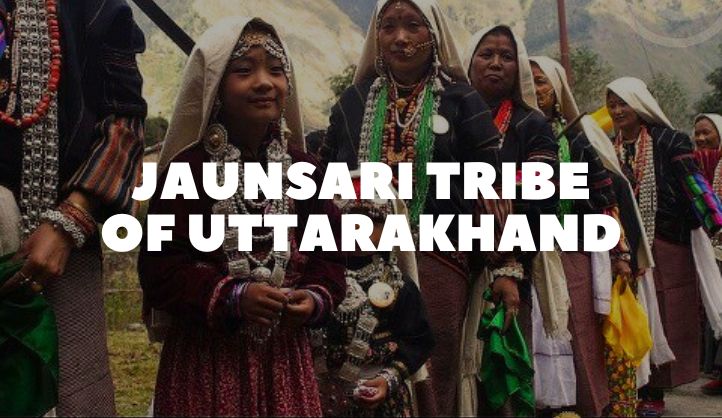Nestled amidst the majestic foothills of the Western Himalayas in Uttarakhand lies the Jaunsar-Bawar region, home to the fascinating Jaunsari tribe. Steeped in history and tradition, the Jaunsari people have carved a unique identity for themselves, distinct from their Garhwali and Kumaoni neighbors. This article delves into the world of the Jaunsaris, exploring their origin, language, culture, and the challenges they face in the modern world.
Origins and History
The Jaunsaris trace their ancestry back to the Pandavas of the epic Mahabharata. Legends claim that the Pandavas sought refuge in Jaunsar during their exile, leaving an indelible mark on the region’s cultural fabric. While the historical accuracy of this legend remains debatable, it reflects the deep-rooted connection the Jaunsaris have with their heritage.
Another theory suggests a migration from the plains of India, with the Jaunsaris adapting their way of life to the harsh yet beautiful Himalayan terrain. Over time, they developed distinct language and cultural practices, preserving a rich heritage that continues to thrive today.
Language – A Window into Their Culture
The Jaunsaris speak Jaunsari, an Indo-Aryan language classified within the Western Pahari subgroup. It shares similarities with Garhwali and Hindi but possesses its own unique vocabulary and grammar. The language serves as a vital link to their past, reflecting their customs, traditions, and way of life.
Due to limited exposure to mainstream media, Jaunsari is primarily a spoken language. However, efforts are underway to document and preserve it. Educational institutions are introducing Jaunsari language courses, and local initiatives promote its use in writing to ensure its survival for future generations.
A Vibrant Culture – Gods, Festivals, and Folk Dances
The Jaunsari way of life is deeply intertwined with their spiritual beliefs. They follow Hinduism, strongly emphasizing local deities known as “Devtas.” “Mahasu Devta” holds the highest position in their pantheon, believed to be the community’s protector.
Jaunsari festivals are a vibrant display of their culture. The “Buchaud” festival, celebrated during the summer, marks the start of the agricultural season. “Moroj” and “Bissu” festivals, held during harvest time, involve thanksgiving rituals and lively dancing.
Music and dance are integral parts of Jaunsari’s life. Folk dances like “Harul,” depicting the joy of sowing seeds, and “Ghundiya Raso,” a celebratory dance performed by women, showcase their artistic expression.
A Way of Life – Farming and Social Practices
Traditionally, the Jaunsaris have been a community of agriculturists. Their terraced fields, carved into the mountain slopes, demonstrate their resilience and skill in adapting to the challenging environment. They practice subsistence farming, growing crops like wheat, barley, and lentils, while also raising sheep and goats.
The Jaunsari social structure is unique. In some parts of the community, polyandry, where a woman marries multiple brothers, was practiced in the past. Though less prevalent today, it reflects their pragmatic approach to life in a resource-limited environment.
The concept of “Devdari” is another noteworthy tradition. Young girls are offered to the local deity, often receiving education and a secure position within the community. However, this practice has recently come under scrutiny due to concerns about exploitation.
Challenges and the Path Forward
Despite their rich heritage, the Jaunsaris face several challenges. Outmigration, particularly among the younger generation seeking better education and employment opportunities, is a growing concern. Modernization and the influence of mainstream culture pose a threat to their traditional way of life and language.
However, there are positive developments as well. Ecotourism initiatives are promoting the Jaunsari region, providing them with economic opportunities while showcasing their culture. Government programs and NGOs are working towards improving their access to education and healthcare.
The Jaunsaris themselves are taking steps to preserve their heritage. Educational institutions are promoting the Jaunsari language. Cultural events and festivals keep traditions alive. By embracing education while safeguarding their unique identity, the Jaunsaris can navigate the challenges of the modern world and ensure their culture continues to thrive.
Conclusion
The Jaunsari tribe is a testament to the enduring human spirit, adapting and thriving in the face of adversity. Their rich cultural heritage, from their language and festivals to their agricultural practices and social customs, offers valuable insights into life in the Himalayas. As the world becomes increasingly homogenized, preserving the unique identity of the Jaunsaris is crucial for maintaining cultural diversity. Through education, sustainable development, and a commitment to their heritage, the Jaunsaris can ensure their legacy continues to inspire future generations.
FAQs About Jaunsari Tribe of Uttarakhand
1. Where are the Jaunsaris located?
The Jaunsaris reside in the Jaunsar-Bawar region of Uttarakhand, nestled in the foothills of the Western Himalayas. This region falls within the Garhwal Division, bordering the state of Himachal Pradesh.
2. What is the traditional dress of the Jaunsaris?
Jaunsari attire reflects their practical way of life and adaptation to the mountain environment. Men wear woolen “kurtas” (tunics) and “dhotis” (long cloths) for warmth, along with a cap known as a “topi.” Women adorn themselves with colorful “kurtas,” long skirts, and shawls with intricate embroidery.
3. What are some popular Jaunsari foods?
Jaunsari cuisine is simple yet flavorful, utilizing locally sourced ingredients. Staples include “mandua roti” (flatbread made from finger millet), “dal” (lentil soup), and “Bhatt” (buckwheat porridge). They also relish dishes like “chainsoli” (stir-fried vegetables) and “aloo gutke” (potato curry), cooked with spices and herbs grown in their own fields.
4. Is polyandry still practiced by the Jaunsaris?
Polyandry, the practice of a woman marrying multiple brothers, was traditionally practiced by some Jaunsari communities due to factors like limited land resources and the need for a strong male workforce. However, with changing social dynamics and economic opportunities, polyandry is rarely practiced today.
5. How can I experience Jaunsari culture?
Ecotourism initiatives are promoting responsible travel to the Jaunsar-Bawar region. Homestays provide an opportunity to immerse yourself in Jaunsari life, experiencing their hospitality and traditional way of living. Participating in local festivals allows you to witness their vibrant dances, music, and rituals. Responsible tourism not only allows you to learn about their culture but also contributes to their economic well-being.





